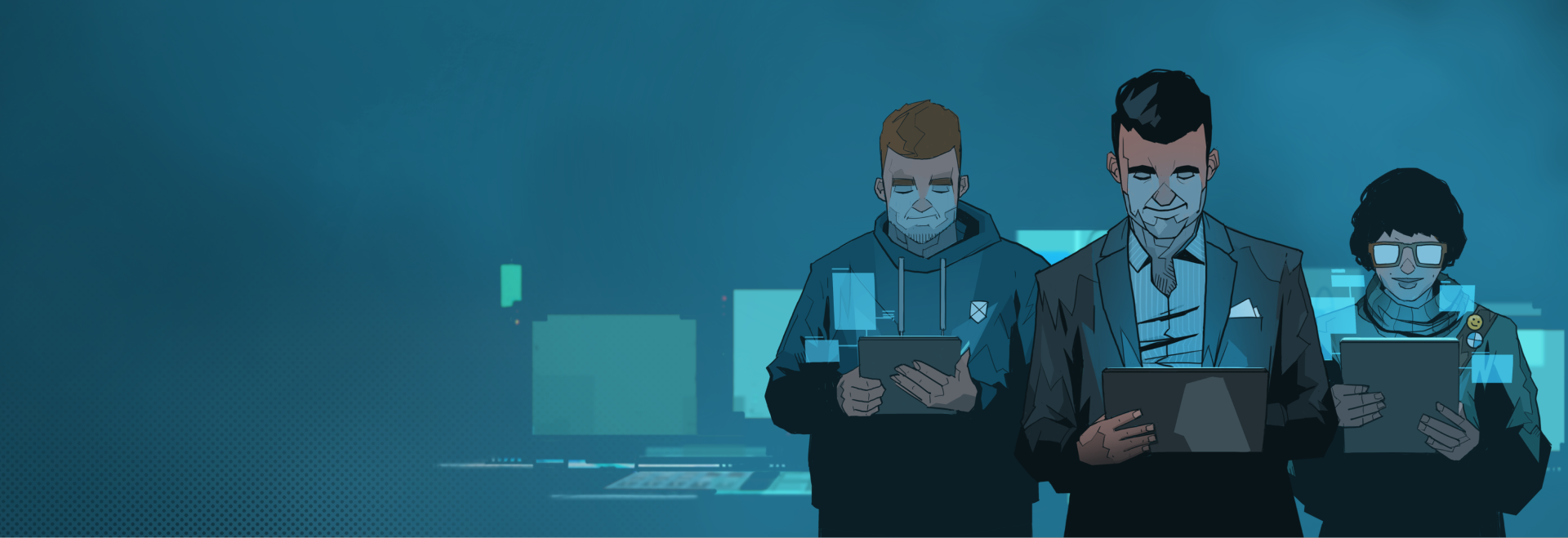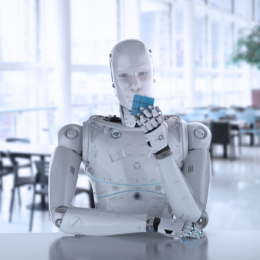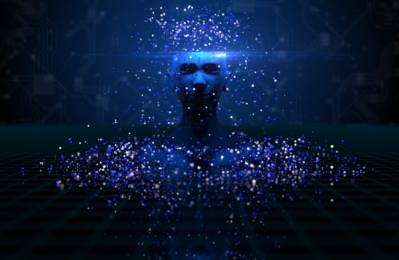Artificial Intelligence (AI) is irreversibly changing the world of work, taking on more and more responsibilities and becoming more invisible. Robo Dusík, co-founder of TITANS, reveals how much we can trust it to manage sensitive employee data and recruit the right candidates.
Neddra Lira, who used to deliver packages through Amazon Flex, was one of the company’s top deliverers for three years. One day, however, she received an email that terminated her employment and sparked serious financial problems. Her story mirrors the experiences of other former Amazon employees who, in 2020, were let go in a previously unusual way. This is because the process was based on the decision of artificial intelligence, which concluded that they were not doing their jobs properly.
The company has automated its human resources (HR) more than most companies over the past few decades. What’s more, the e-commerce industry is known for its unusually challenging working conditions. Because they are monitored and supervised by robots, Amazon employees are also treated like robots, they say.
Half the Work Will Be Done For Us
Indeed, companies are increasingly embracing AI and its various functions in internal processes. Companies worldwide will spend $151.1 billion on generative AI solutions by 2027. Research company International Data Corp estimates this. A report by Eightfold AI even states that most HR executives surveyed are already using AI. An example is the scenario where a new person needs to be hired by a company. Algorithms can analyse resumes, determine the most qualified candidates, and provide information to help recruiters make better decisions.
“People in HR can overlook some things and make mistakes due to fatigue, inattention, or personal issues. But AI can’t let that happen. It helps them to be more thorough in their work,” explains Róbert Dusík, CEO and co-founder of TITANS.
The benefits of working with AI are also highlighted by Alex Hood, Product Director at Asana. He estimates that half of the time we spend at work is dedicated to what he calls “work for work’s sake”. These are activities that are not at the core of why we are there, and which AI should take over. It can automate repetitive and time-consuming tasks, allowing the HR department to focus on more complex activities such as strategizing. In addition, it will help HR to enhance analytics and provide suggestions on how to save corporate costs.

Under Constant AI Surveillance
Artificial intelligence can provide valuable insights for HR managers also by monitoring employee behaviour and productivity. They can detect early signs of burnout, optimise workflows, and decide on promotions or salary increases. At the same time, they can also terminate employees who have the lowest performance.
According to a report by ResumeBuilder, 44% of executives say there will be layoffs in 2024 due to AI efficiency. But at the same time, technology is allowing us to restructure and redefine the work we do. Companies will still need someone to prompt AI activity, make sense of the results, and take the associated safety measures.
TITANS’s HR base is also improving its processes with the help of AI products. However, there are no plans to replace employees in bulk with machines. “It’s very important for us to explain to our people every new technology we bring into the company and show them upfront how it will increase their productivity and efficiency. As an IT company, this is in our DNA,” says Róbert Dusík.
Decisions Must Be Made by a Human
Despite its wide range of benefits, artificial intelligence is not omniscient. It can generate useful data when examining an employee’s specific situation, but it cannot provide a comprehensive picture of that situation, which can be used to make fair decisions. The case of the laid-off Lira from Texas, who was delivering packages for Amazon, is proof. The HR department should further analyse the reasons behind the data collected to understand it properly.
The Harvard Business School is also aware of this. As many as 88% of its HR leaders learned that their tools rejected qualified candidates who had a resume gap of more than six months. In many cases, however, it could have represented legitimate life events, such as pregnancy, deployment in the military, or illness.
Cybersecurity risks also need to be considered. HR needs to be able to reassure employees that their personal information, such as social security numbers and bank details, is safe. If it fails to adopt reliable policies, the company risks lawsuits, high penalties, and reputational damage.
“This is one of the things without which companies should not let AI in at all,” emphasises Róbert Dusík. “In all the studies I’ve read so far on introducing AI into HR, there is always a strong disclaimer: for this to work, robust policies need to be put in place over the data that AI will have access to. Artificial intelligence may be a good servant, but it’s a bad master, and GDPR is at play, in addition to ethics.” He also adds that critical thinking and strong policies created by the human mind are a must at TITANS.
AI Repeats Our Mistakes
Amazon has a history of multiple highly-publicised missteps involving the use of AI. In 2018, it stopped hiring employees using an algorithm that perpetuated gender discrimination. The reason was that the sample data and resumes the company provided to the algorithm were heavily biased toward men.
“We want to use AI to avoid prejudices,” says Róbert Dusík. “That’s why it’s important to change the mindset around the data to be evaluated, and we should not approach them as big data, but wide data.”
To prevent discrimination, New York City passed a law requiring companies to check for bias in AI-powered recruitment software. A law in the US state of Illinois requires employers to inform applicants about the use of AI and obtain their consent in advance. This shows that companies that want to succeed in the market should be able to strike a balance between technology and human involvement. When a trained team of HR professionals closely oversees AI, organisations can be confident that potential risks remain under control.


Titans that have
joined us

Clients that have
joined us

Succcessfully supplied
man-days






